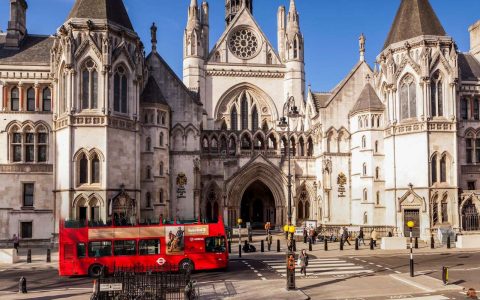
Britain’s youngest terrorist gets lifelong anonymity after lawyers argue he may become ISIS poster boy
Britain’s youngest terrorist who was jailed for life aged 14 for plotting to murder police officers has been granted lifelong anonymity, after his lawyers argued he could become an “poster boy” for Islamic State he is identified.
The teenager from Blackburn, Lancashire, referred to only as RXG, admitted inciting terrorism overseas in 2015 after he exchanged more than 3,000 encrypted messages with Australian jihadist Sevdet Besim.
Writing from his bedroom, RXG convinced Besim, then aged 18, to run over and behead police officers guarding Anzac Day parade in Melbourne. Held on April 25 each year, it commemorates Australian and New Zealand personnel killed in conflicts.
The plot was foiled after British officers discovered the incriminating messages on RXG’s phone and alerted police in Australia.
RXG, who has autism, was given automatic anonymity like the majority of child offenders until his current age of 18, when reporting restrictions are usually lifted and identities revealed.
But the teenager, who could be released from prison as early as next year, has now won a year-long High Court battle for lifelong anonymity – a legal challenge never before seen in a terrorism case in the UK.
The President of the Queen’s Bench Division, Dame Victoria Sharp, handed down the judgement during a brief hearing at the Royal Courts of Justice in London today.
His lawyers had argued that making his identity public would put him and his family at serious risk of reprisals, make him vulnerable to indoctrination by extremists, and jeopardise his rehabilitation.
They said media coverage would result in him becoming “instantly and globally infamous as the youngest person to be convicted of a terrorist conviction” and his name would be “embedded in the public domain on the internet”.
It could also lead to him being glorified and used by Isil to indoctrinate and recruit “impressionable teenagers”, they argued.
A summary of their representations in the judgement states: “If he now loses his anonymity, he will be of interest to extremists who may target him to seek to indoctrinate him.
“Isil said it wanted him to be its ‘poster boy’ and RXG is of particular interest for propaganda purposes because of the notorious nature of his offence and the fact he was the youngest convicted terrorist in the UK.”
RXG joins just six other offenders who have been awarded lifelong anonymity orders by the UK courts. These include James Bulger’s killers Jon Venables and Robert Thompson, double child killer Mary Bell, and Maxine Carr, who was charged in relation to the Soham murders.
He was diagnosed as having “high functioning autism” in October 2017 following his conviction.
A forensic psychologist said in an assessment eight months later that “hostile reporting” or being identified as “a terrorist” would cause him distress and “evoke feelings of shame and humiliation”.
In the report, Dr Louise Bowers wrote: “RXG appears to have left his ‘terrorist identity’ behind and is well on the way to developing a new stable and pro-social identity.”
Judges decided whether or not to grant lifelong anonymity to RXG by weighing up his right to privacy under human rights law against the public’s right to know about his crimes. In the judgement it states that RXG’s case is “exceptional” and that there is “compelling evidence” that identifying him would likely “cause him serious harm”.
It continues: “In this case, there is a consensus in the expert evidence that the identification of RXG as a person convicted of terrorist offences would fundamentally undermine his rehabilitation.
“The position is exacerbated by his autism which manifests itself in his obsessive behaviour. “This, combined with his need for recognition and status, makes him very vulnerable to exploitation and potential re-radicalisation. “RXG… now has a better understanding of his autism and how to manage it more effectively. However, this is in the context of the protection he currently enjoys.”
RXG pleaded guilty to two offences of inciting terrorism overseas at Manchester Crown Court in July 2015.
In October 2015 he was handed a life sentence and ordered to serve a minimum of five years. He will be eligible for release in 2020.
RXG was recruited by Isil after he became isolated in his education and home life, the sentencing judge Mr Justice Saunders said at the time.
He added: “There was a vacuum in his life which he filled with religious extremism.
“He communicated with extremist propagandists who either worked for Isil or supported their aims over the internet. They were experienced recruiters who were keen to enlist young impressionable Muslims to the cause.”
Source: Telegraph





